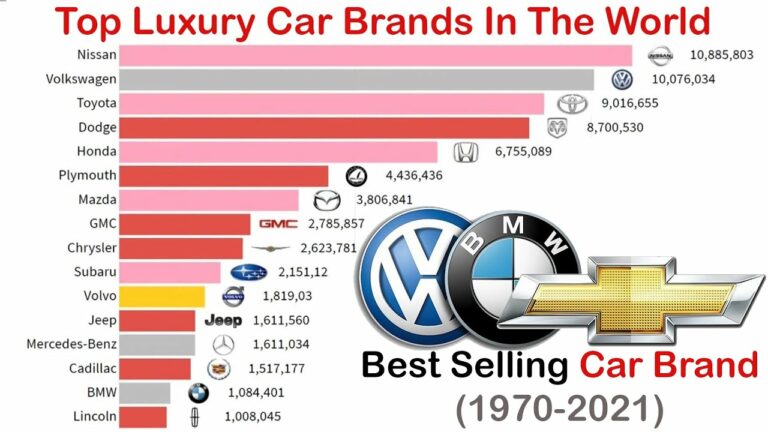Commercial Truck Value Estimator: Your Essential Guide to Accurate Valuation
Commercial Truck Value Estimator: Your Essential Guide to Accurate Valuation cars.truckstrend.com
In the dynamic world of commercial transportation, understanding the true worth of a heavy-duty truck is not merely a matter of curiosity; it’s a critical financial imperative. Whether you’re a seasoned fleet manager, an independent owner-operator, a burgeoning entrepreneur looking to acquire your first rig, or a financial institution assessing collateral, accurately estimating the value of a commercial truck is paramount. This is where the Commercial Truck Value Estimator comes into play – an indispensable tool and methodology designed to provide a precise, objective assessment of a truck’s market worth.
A Commercial Truck Value Estimator is more than just a simple calculator; it’s a sophisticated system that analyzes a myriad of factors to determine a fair market price. It empowers stakeholders to make informed decisions, negotiate effectively, manage assets efficiently, and ensure financial stability. In an industry characterized by significant capital investment and fluctuating market conditions, relying on guesswork can lead to substantial financial losses. This comprehensive guide will delve into the intricacies of commercial truck valuation, exploring its benefits, the factors that drive value, the various estimation methods available, and practical advice to leverage these tools effectively.
Commercial Truck Value Estimator: Your Essential Guide to Accurate Valuation
Understanding the Core: What is a Commercial Truck Value Estimator?
At its heart, a Commercial Truck Value Estimator is any tool, software, or professional service that systematically assesses the fair market value of a commercial truck. This includes everything from heavy-duty tractors and dump trucks to box trucks, reefers, and specialized vocational vehicles. Unlike passenger vehicles, commercial trucks are complex assets with a vast array of configurations, engine types, and specialized equipment, making their valuation inherently more challenging.
The primary purpose of such an estimator is to provide an objective, data-driven valuation that reflects current market conditions and the specific attributes of a given vehicle. It moves beyond subjective opinions by leveraging vast datasets of past sales, current listings, and industry trends, combined with detailed information about the truck itself.
Who utilizes these estimators?
- Buyers: To ensure they don’t overpay and to negotiate from a position of strength.
- Sellers: To price their trucks competitively, attract serious buyers, and maximize their return on investment.
- Dealerships: For trade-in appraisals, inventory management, and setting retail prices.
- Financial Institutions: To assess collateral for loans, ensuring the asset covers the debt.
- Insurance Companies: For determining policy values, claim settlements, and underwriting risks.
- Fleet Managers: For depreciation tracking, asset replacement planning, tax purposes, and optimizing fleet turnover.
- Appraisers: As a foundational tool to conduct professional, certified valuations for legal or complex financial matters.


In essence, an estimator serves as a crucial bridge between the physical asset and its monetary worth in the marketplace, providing clarity and confidence to all parties involved.
Why Accurate Valuation Matters: The Benefits of Using an Estimator
The importance of precise commercial truck valuation cannot be overstated. Its impact ripples across various aspects of the commercial trucking business, offering significant benefits:

For Sellers: Maximizing Return & Expediting Sales
An accurate estimate allows sellers to price their truck realistically and competitively. Overpricing leads to stagnation, while underpricing results in lost profit. Knowing the true market value helps set a fair asking price, attracting serious buyers faster and ensuring a smoother, more profitable transaction. It also provides leverage during negotiations, backed by objective data.
For Buyers: Smart Acquisitions & Budget Control
For buyers, an estimator is a shield against overpayment. It enables them to verify asking prices, compare different vehicles objectively, and negotiate effectively. This insight ensures that capital is allocated wisely, preventing costly mistakes and allowing for more accurate budgeting for future operations, maintenance, and potential upgrades.
For Financial Institutions: Risk Mitigation & Loan Assurance
Lenders rely heavily on accurate valuations to assess the collateral backing a loan. A precise estimate ensures that the loan amount is appropriately secured, mitigating risk for the institution. It’s a fundamental component of their due diligence process, impacting interest rates, loan terms, and approval decisions.
For Insurance Companies: Fair Settlements & Policy Accuracy
In the event of an accident or total loss, an accurate pre-assessment of a truck’s value ensures fair and swift claim settlements. For policyholders, it means receiving adequate compensation. For insurers, it ensures accurate premium calculations and reduces disputes.
For Fleet Management: Strategic Planning & Optimized Operations
Fleet managers use valuation data for comprehensive asset management. This includes tracking depreciation, identifying optimal times for trade-ins or sales, planning for fleet expansion or reduction, and making informed decisions about maintenance versus replacement. Accurate valuation supports long-term strategic planning, contributing to the overall profitability and efficiency of the fleet.
Tax & Accounting Purposes: Compliance & Accuracy
For tax reporting, depreciation calculations, and financial statements, an objective valuation is essential. It ensures compliance with accounting standards and tax regulations, preventing discrepancies and potential audits.
In every scenario, a reliable Commercial Truck Value Estimator empowers users with the data needed to make intelligent, financially sound decisions in a high-stakes industry.
Key Factors Influencing Commercial Truck Value
The value of a commercial truck is a complex interplay of numerous factors, each contributing to its overall market desirability and price. Understanding these elements is crucial for both sellers aiming to maximize value and buyers seeking to identify good deals.
- Make, Model, and Year: Brand reputation, reliability, and age significantly impact value. Newer trucks generally command higher prices due to less wear, modern features, and compliance with current regulations.
- Mileage: A primary indicator of wear and tear on major components. Lower mileage for a given age typically results in a higher valuation.
- Condition (Interior, Exterior, Mechanical): This encompasses everything from the engine, transmission, brakes, and tires to the cab’s interior cleanliness and the exterior bodywork (rust, dents, paint). Excellent condition across all these aspects is paramount.
- Engine and Drivetrain Specifications: Horsepower, torque, engine manufacturer (e.g., Cummins, Detroit Diesel, PACCAR), and transmission type (manual vs. automatic) influence performance, fuel efficiency, and suitability for various applications, directly affecting value.
- Axle Configuration: The number of axles (e.g., 4×2, 6×2, 6×4) dictates a truck’s hauling capacity and suitability for specific jobs, influencing its market segment and value.
- Body Type/Application: The type of body or specialized equipment (e.g., flatbed, reefer, dump, tanker, vocational body, sleeper cab vs. day cab) is a major determinant of value, as it defines the truck’s primary function and target market.
- Maintenance History: Comprehensive, verifiable service records indicate responsible ownership and a proactive approach to upkeep, significantly increasing buyer confidence and value. A well-documented history suggests fewer unexpected problems.
- Aftermarket Add-ons/Modifications: While some beneficial upgrades (e.g., auxiliary power units, advanced safety systems, custom interiors) can add value, highly specialized or poorly installed modifications might limit market appeal.
- Regional Market Demand: Economic conditions, industry growth, and specific regional needs can cause fluctuations in demand and, consequently, prices for certain truck types.
- Economic Conditions: Broader economic factors like freight rates, fuel prices, and interest rates directly influence the profitability of trucking operations, affecting demand for trucks.
- Emissions Standards Compliance: Compliance with current and upcoming emissions regulations (e.g., CARB standards in California) is critical. Older trucks that do not meet these standards, or require expensive modifications to do so, will see their value significantly reduced, especially in regulated areas.
Types of Commercial Truck Value Estimators and How They Work
Several methods and tools are available for estimating commercial truck values, each with its own advantages and limitations:
-
Online Calculators & Databases: These are often provided by large online marketplaces (e.g., TruckPaper.com, Commercial Truck Trader), auction sites, or dedicated valuation services. They typically use algorithms that analyze vast databases of recent sales data and current listings. Users input key truck details (make, model, year, mileage, specs, condition), and the system provides an estimated value range.
- Pros: Quick, convenient, often free or low cost, good starting point.
- Cons: Can be less precise for highly specialized or older trucks, may not account for unique regional market nuances or specific maintenance histories.
-
Professional Appraisals: Conducted by certified independent appraisers, this is the most thorough and accurate method. Appraisers perform a physical inspection of the truck, review maintenance records, assess market conditions, and compile a detailed report.
- Pros: Highly accurate, legally defensible, accounts for all unique factors, essential for complex transactions, insurance claims, or legal disputes.
- Cons: More expensive and time-consuming than online tools.
-
Dealership Trade-in Valuations: When purchasing a new truck, dealers offer to appraise your current truck for trade-in.
- Pros: Convenient, streamlines the purchase process.
- Cons: Typically lower than market value, as dealers need room for reconditioning and profit margin.
-
Auction Data: Observing results from major commercial truck auctions (e.g., Ritchie Bros., IronPlanet) provides real-time indicators of market demand and pricing.
- Pros: Reflects actual transactional prices, especially for bulk sales or quick liquidation.
- Cons: Prices can be volatile, and trucks sold at auction might not always reflect retail market value (often lower due to "as-is" sales).
-
Industry Guides & Publications: Similar to "Blue Books" for cars, some publications provide valuation guides for commercial vehicles. These typically offer baseline values adjusted for mileage and condition.
- Pros: Provide a standardized reference point.
- Cons: Less real-time, may not capture rapid market shifts or highly specialized configurations.
For the most comprehensive and reliable valuation, a multi-pronged approach combining online tools with market research and potentially a professional appraisal is often recommended.
A Step-by-Step Guide: How to Use a Commercial Truck Value Estimator Effectively
To get the most accurate estimate, systematic preparation and an understanding of the process are key:
-
Gather Comprehensive Truck Information: Before you start, collect all vital details about your truck. This includes:
- VIN (Vehicle Identification Number): Essential for accurate identification.
- Make, Model, Year: Basic identifiers.
- Exact Mileage: As of the valuation date.
- Engine Specifications: Manufacturer, horsepower, torque, emissions tier.
- Transmission Type: Manual or automatic, and number of gears.
- Axle Configuration: E.g., 6×4, 4×2, tandem, tri-axle.
- Body Type & Features: Specific details about the sleeper, dump body, reefer unit, flatbed length, etc. Include any specialized equipment.
- Tire Condition: Tread depth and overall wear.
-
Document Condition Meticulously: This is perhaps the most subjective yet critical factor. Be honest and detailed:
- Mechanical: Are there any known issues? Any warning lights? Recent major repairs? When was the last service?
- Exterior: Note any dents, scratches, rust, paint fade, or damage to lights, mirrors, or glass.
- Interior: Assess wear and tear on seats, dashboard, controls, and general cleanliness.
- Take High-Quality Photos/Videos: Capture all angles, especially highlighting both positive features and any areas of concern. This visual evidence supports your condition assessment.
-
Compile Maintenance and Service Records: A detailed history of oil changes, major repairs, component replacements, and preventative maintenance adds significant value. Buyers want assurance that the truck has been well-cared for. Digitize these if possible.
-
Input Data into Your Chosen Estimator: Carefully enter all the gathered information into the online tool or provide it to your appraiser. Accuracy here is paramount; even small errors can lead to skewed results.
-
Understand the Output and Its Nuances: Online estimators typically provide a value range (e.g., $X to $Y), rather than a single definitive number. Understand that this range reflects market variations and the tool’s limitations. For professional appraisals, you’ll receive a detailed report with a specific valuation.
-
Cross-Reference and Corroborate: Don’t rely on a single source. Compare the estimator’s results with:
- Comparable Listings: Search for similar trucks currently for sale on major marketplaces.
- Recent Sales Data: If available, look at what similar trucks have actually sold for.
- Local Market Trends: Consider if your region has specific demand or supply dynamics.
-
Consider a Professional Appraisal for High-Value or Complex Cases: If the truck is particularly valuable, highly customized, or if you’re involved in a legal or complex financial transaction, investing in a certified professional appraisal is highly recommended for the most accurate and defensible valuation.
By following these steps, you ensure a thorough and informed approach to valuing your commercial truck, leading to more confident and profitable decisions.
Challenges and Considerations in Truck Valuation
Despite the sophisticated tools available, commercial truck valuation presents several unique challenges:
- Market Volatility: The commercial truck market is highly sensitive to economic shifts, fuel prices, freight rates, and regulatory changes. A truck valued today might have a different worth in a few months.
- Subjectivity of Condition: While objective criteria exist, one person’s "good" condition might be another’s "fair." This subjective element can lead to discrepancies between online estimates and real-world assessments.
- Specialized Equipment: Trucks with highly specialized bodies or custom modifications can be difficult to value accurately using standard tools, as comparable sales data may be scarce. Their market is often niche.
- Data Gaps: Older trucks, unique configurations, or those from less common manufacturers may have limited comparable sales data, making precise valuation more challenging for algorithm-based tools.
- Regional Differences: Demand and pricing for certain truck types can vary significantly by geographic region due to local industries, regulations, or economic conditions.
- Regulatory Changes: Evolving emissions standards (e.g., EPA, CARB) can drastically impact the value of older trucks, particularly if they require costly retrofits or are restricted from operating in certain areas.
Overcoming these challenges often requires a combination of using multiple estimation methods, consulting with industry experts, and conducting thorough market research.
Maximizing Your Truck’s Value: Tips for Owners
For commercial truck owners, proactively maintaining and preparing your vehicle can significantly enhance its market value:
- Implement a Robust Preventative Maintenance Program: Regular servicing, fluid changes, and timely repairs are crucial. This not only keeps the truck running efficiently but also preserves its long-term value.
- Maintain Meticulous Service Records: Keep every receipt, work order, and inspection report. A complete, organized maintenance history is invaluable to potential buyers and dramatically increases confidence.
- Address Cosmetic Issues Promptly: Small dents, scratches, faded paint, and interior wear can detract from value. Regular cleaning, minor paint touch-ups, and interior detailing can make a big difference.
- Ensure All Components are Functional: Test all lights, gauges, HVAC, and auxiliary equipment. Repair any non-functional items before seeking a valuation or sale.
- Check Tire and Brake Condition: These are major safety and cost considerations for buyers. Ensure tires have good tread depth and brakes are in excellent working order.
- Comply with Emissions Regulations: Ensure your truck meets all relevant emissions standards, especially if operating in highly regulated states. Non-compliance can severely devalue a truck.
- Know Your Truck’s Specifics: Be able to articulate all features, upgrades, and benefits of your particular truck.
- Present Your Truck Professionally: If selling, clean it thoroughly, inside and out. High-quality photos and a detailed description are essential for attracting serious buyers.
Key Factors Influencing Commercial Truck Value
| Factor | Description | Impact on Value |
|---|---|---|
| Make & Model | Brand reputation, reliability, popularity, and parts availability. | Premium brands (e.g., Peterbilt, Kenworth) often hold value better. Niche models might have limited buyers. |
| Year of Manufacture | Age of the truck. | Newer trucks generally command higher values due to lower wear, modern features, and technology. |
| Mileage | Total distance driven, indicative of engine/component wear and remaining lifespan. | Lower mileage for its age significantly increases value; higher mileage decreases it, especially beyond typical industry benchmarks. |
| Engine & Drivetrain | Horsepower, torque, engine manufacturer, transmission type (manual/auto), and maintenance history. | Desirable, fuel-efficient, or high-performance engines/transmissions increase value. Well-maintained components are key. |
| Truck Condition | Overall physical and mechanical state (engine, brakes, tires, interior, body, frame). | Excellent condition (minimal wear, no major damage, fully functional systems) significantly boosts value. Poor condition drastically reduces it. |
| Maintenance History | Documented records of regular servicing, preventative maintenance, and repairs. | Comprehensive, verifiable history builds trust, indicates responsible ownership, and significantly increases value. Lack of records lowers it. |
| Body Type / Application | Specific configuration (e.g., Flatbed, Reefer, Dump, Box Truck, Sleeper, Vocational). | High-demand body types for current market needs will increase value. Niche or highly specialized types might limit the buyer pool. |
| Axle Configuration | Number of axles and drive configuration (e.g., 6×4, 4×2, tandem, tri-axle). | Configuration matching common industry needs (e.g., heavy haul, over-the-road) can increase value. |
| Aftermarket Add-ons | Specialized equipment, custom interiors, safety features, telematics. | Desirable, well-installed, and industry-relevant add-ons (e.g., APU, wet kit, advanced safety tech) can increase value. |
| Emissions Compliance | Adherence to current environmental regulations (e.g., EPA, CARB standards). | Crucial for operation in many regions. Non-compliance, especially for older trucks, severely devalues the asset and may render it unsellable in certain markets. |
| Market Demand & Region | Current economic climate, freight rates, fuel prices, and regional specific needs/regulations. | High demand for specific truck types in a particular region can temporarily inflate prices. Supply and demand dynamics are critical. |
Frequently Asked Questions (FAQ) about Commercial Truck Value Estimators
Q1: How accurate are online commercial truck value estimators?
A1: Online estimators provide a good starting point and a general value range. Their accuracy depends on the quality and completeness of the data you input, and the depth of the database they draw from. They are excellent for initial research but may not account for every unique nuance of a specific truck or localized market conditions. For definitive valuations, especially for high-value or complex trucks, a professional appraisal is recommended.
Q2: When should I consider getting a professional appraisal instead of using an online tool?
A2: A professional appraisal is advisable for:
- High-value trucks (e.g., specialized heavy haulers, expensive new models).
- Legal disputes (e.g., divorce settlements, estate valuations).
- Complex financing or insurance claims.
- Trucks with unique modifications or extensive damage/repairs.
- When an independent, legally defensible valuation is required.
Q3: Does a clean title significantly impact a truck’s value?
A3: Absolutely. A clean title, indicating no prior major accidents or total losses, is crucial for maintaining value. Trucks with salvage, rebuilt, or branded titles (e.g., flood damaged) will have their value severely diminished, often by 30-50% or more, and can be much harder to sell or insure.
Q4: How quickly do commercial trucks depreciate?
A4: Commercial truck depreciation varies widely based on factors like make, model, mileage, usage, and maintenance. Generally, trucks depreciate fastest in their early years, similar to passenger vehicles. High mileage and heavy-duty use accelerate depreciation. However, well-maintained, in-demand models can hold their value surprisingly well, especially in strong markets.
Q5: Can I increase my truck’s estimated value before selling it?
A5: Yes! Several actions can boost your truck’s value:
- Regular, documented maintenance: A comprehensive service history is golden.
- Thorough cleaning and detailing: Inside and out.
- Addressing minor mechanical issues: Fix any known problems.
- Repairing cosmetic damage: Dents, scratches, cracked glass.
- Ensuring all lights and systems work: Basic functionality is expected.
- Checking tire and brake condition: Major cost factors for buyers.
Q6: Are regional differences in value significant?
A6: Yes, very much so. Demand for specific truck types can vary by region (e.g., logging trucks in the Pacific Northwest, oilfield trucks in Texas). Regulatory environments (like California’s strict emissions laws) can also dramatically impact the value of older trucks, making them worth less in regulated areas than in non-regulated ones.
Conclusion
The Commercial Truck Value Estimator is an indispensable tool in the complex landscape of heavy-duty vehicle ownership and commerce. From initial acquisition to eventual resale or trade-in, understanding a truck’s true market worth is foundational to making sound financial decisions. Whether leveraging sophisticated online algorithms, consulting with certified appraisers, or meticulously researching market trends, the goal remains the same: to arrive at an accurate, defensible valuation.
By grasping the myriad factors that influence value – from mileage and maintenance to engine specifications and regional demand – and by diligently preparing your vehicle for assessment, you empower yourself with the knowledge needed to navigate the commercial truck market confidently. In an industry where capital investments are substantial and margins can be tight, an informed decision is not just beneficial; it is absolutely vital for long-term success.






